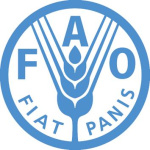- Industrie: Agriculture
- Number of terms: 87409
- Number of blossaries: 0
- Company Profile:
Established in October 1945 with the objective of eliminating hunger and improving nutrition and standards of living by increasing agricultural productivity, FAO coordinates the efforts of governments and technical agencies in programs for developing agriculture, forestry, fisheries, and land and ...
To disintegrate tissues to obtain a cell dissociation. Cutting, soaking or enzymatic actions are commonly used.
Industry:Biotechnology
To dry, exhaust or deprive of water or moisture. Any chemical used for this purpose is called a desiccant. An apparatus for drying and preventing hygroscopic samples from rehydrating is a desiccator. The process is desiccation.
Industry:Biotechnology
To force the passage of liquid into tissue pores or space, such as by applying a vacuum, then releasing it, during the disinfectation procedure.
Industry:Biotechnology
To increase the number of copies of a DNA sequence, either <i>in vivo</i> by inserting into a cloning vector that replicates within a host cell, or <i>in vitro</i> by polymerase chain reaction (PCR).
Industry:Biotechnology
To induce structural alterations that disrupt the biological activity of a molecule. Often refers to breaking hydrogen bonds between base pairs in double-stranded nucleic acid molecules to produce single-stranded polynucleotides, or altering the secondary and tertiary structure of a protein, destroying its activity.
Industry:Biotechnology
To place a detached branch (scion) in close cambial contact with a rooted stem (rootstock) in such a manner that scion and rootstock unite to form a single plant.
Industry:Biotechnology
To propagate or (mass) proliferate. The process is generation or regeneration.
Industry:Biotechnology
To remove the mineral content (salts, ions) from a substance, especially water. Removal methods include distillation and electrodialysis. The process is de-mineralization.
Industry:Biotechnology
To separate by exclusion or collection on the basis of a set of criteria (biochemical, anatomical, physiological, etc.). Screening is often applied to the process of selection for specific purposes, such as disease resistance or improved agronomic qualities in plants, improved performance in animals, specific enzyme properties in micro-organisms, etc.
Industry:Biotechnology
To specify, after decoding by transcription and translation, the sequence of amino acids in a protein.
Industry:Biotechnology
